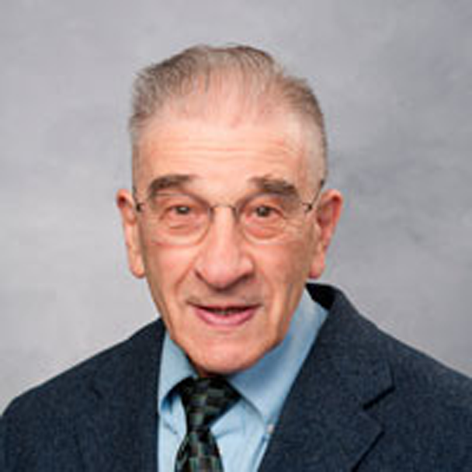
With the passing of Professor Emeritus Martin Harrow, Ph.D. on February 21, 2023, the fields of Psychology, Psychiatry, and Phenomenology lost a brilliant scholar, scientist, mentor, and beloved friend.
Dr. Harrow was born in Manhattan, New York City, in 1933 and was affectionately known by all as ‘Marty’. Dr. Harrow completed his undergraduate degree in 1955 at City University of New York with a major in Psychology and a minor in Philosophy and in 1961 he received his Ph.D. in Clinical Psychology from Indiana University at Bloomington, where his dissertation was an experimental study of concept formation. In his earliest faculty position at Yale University (1962) he advanced from staff psychologist to Chief Psychologist and Associate Professor during his 11-year tenure. While at Yale he began his life-long study of schizophrenia and psychotic disorders, contributing to an early (1972) objective, quantitative scale of schizophrenia, the New Haven Schizophrenia Index, and commencing his studies on thought disorder and prognosis in schizophrenia. In 1973 he moved to The University of Chicago Department of Psychiatry and Michael Reese Hospital and Medical Center where the Chicago Follow-up study was initiated. In 1989 Dr. Harrow joined the Department of Psychiatry at the University of Illinois at Chicago and in 2012 was awarded Distinguished Professor Emeritus of Psychiatry and remained productive throughout the remainder of his career.
Dr. Harrow's signature contribution to the field was as the principal investigator of the landmark Chicago Follow-up study, a 20-year prospective and naturalistic study of hundreds of individuals, with diagnoses of schizophrenia, bipolar disorder, or major depression, who were evaluated during the acute phase of their index hospitalization and then reassessed at six subsequent follow-up evaluations over a 20-year period. Initiated at two urban hospitals in Chicago, Michael Reese Medical Center and the Illinois State Psychiatric Institute, it was funded consecutively for over 35 years by the National Institute of Health as well as by various foundations. One of the few such longitudinal studies in the U.S., the Chicago Follow-up Study charted and analyzed the naturalistic course of symptoms, cognition, functioning, and recovery in individuals diagnosed with schizophrenia and primary mood disorders across the years and in numerous publications.
Dr. Harrow published well over 300 articles and several books over the course of his long career. His first publication in 1958 began his lifelong study of the underpinnings of thought formation that led to his seminal work in the longitudinal course and trajectory of thought disorder in psychosis. Utilizing the data from the Chicago Follow-up Study, he also made important contributions to the study of the trans-diagnostic longitudinal course of positive symptoms (delusions, hallucinations, first-rank symptoms), negative symptoms (anhedonia, deficit syndrome), prognosis and recovery outcomes, and antipsychotic treatment. Many times during his career Dr. Harrow was a voice in the wilderness as he followed the data and findings of the Chicago Follow-up study that often challenged the traditional understanding of schizophrenia and other psychotic disorders. By questioning established theory with longitudinal data his work literally changed the way the field thinks about schizophrenia and recovery not to mention challenging the need for long-term antipsychotics as the standard of care for individuals with schizophrenia. His research continues to promote thought and debate in the scientific community to this day and hopefully will continue to do so for a long time to come.
Dr. Harrow served on numerous editorial boards of major academic journals and multiple departmental, State, and National committees, including as Chair of the tenure and promotion committee at the University of Illinois Department of Psychiatry for over 20-years, which speaks to his commitment to facilitating the advancement and development of junior faculty. He was a true mentor and many of his mentees have gone on to have remarkable careers in academia and industry. He also collaborated nationally and internationally on research.
Dr. Harrow was the recipient of multiple national awards, including serving as advisor to the Work Group on Schizophrenia and Related Psychoses for DSM-IV on Schizoaffective Disorders, National Institute of Mental Health MERIT Award, Gralnick Award for Outstanding Research on Suicide in Schizophrenia, by the American Association of Suicidology, an NIMH MERIT Award, and the Zubin Award by the Society for Research in Psychopathology for lifetime contributions to the understanding of psychopathology, as well as the Illinois Psychological Association Award for Outstanding Contribution to the Profession of Psychology. He also was awarded the Distinguished Faculty Award at the University of Illinois College of Medicine in 2013.
In addition to his scientific accomplishments, Dr. Harrow was a renowned Chess Master. Throughout his chess career, Dr. Harrow placed in the U.S. Junior Chess Championship, U.S. Intercollegiate Chess Championship, Connecticut State Chess Champion, New England Chess Championship, and ranked three times in the top seven in the U.S. Open Chess Championship. Dr. Harrow also personally distinguished himself by forcing the legendary Bobby Fischer into two draws. He often commented that he had to abandon his tournament chess career to fully engage in the demands of academic Psychology and Psychiatry. Although chess’ loss, this was our fields’ gain.
If these laurels were not enough, Dr. Harrow was also a dear friend and generous mentor to many and was a most loving husband to his wife Helen, father to Barbara, Jean, Wendy, and Ellen, and a proud grandfather. His own humanity, kindness, and friendship were manifested in all aspects of his very productive life.
With the passing of Dr. Harrow, we have lost a compass that so successfully guided critical research of the most vulnerable, stigmatized, and marginalized individuals, those experiencing serious symptoms of psychosis. We have also lost a genuinely humble and generous friend who made everyone feel like family. He will be greatly missed!
May his memory be a blessing.



